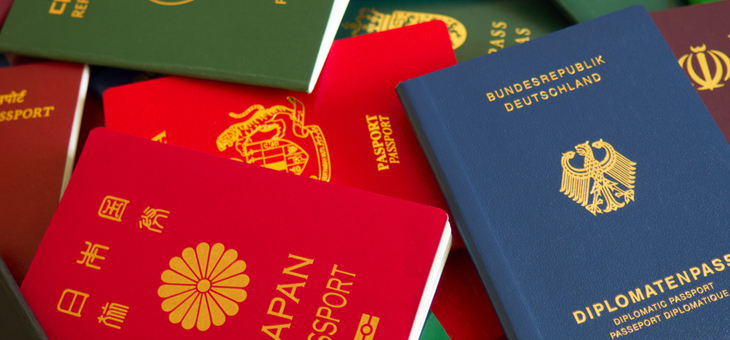Given that most Australians can’t travel overseas at the moment, holding one of the world’s most powerful passports feels like a bit of a moot point.
The fact that international travel is off the cards hasn’t stopped citizenship company Henley and Partners from updating its ranking of the world’s most powerful passports.
The Henley Passport Index, which ranks passports on the number of countries they can visit without the need for a visa (not taking into account COVID restrictions), has seen an Australian passport fall back slightly in the rankings, but still maintain its position inside the top 10.
Read more: Pets could soon be allowed to travel in plane cabins
Australia sits in ninth position. Japan, which is set to host the Olympics, maintained its position at the top of the rankings with a theoretical visa-free/visa-on-arrival score of 193.
While the dominance of European passports in the top 10 has been a given for most of the index’s 16-year history, the pre-eminence of three Asian states – Japan, Singapore, and South Korea – has become the new normal.
Singapore remains in second place, with a visa-free/visa-on-arrival score of 192, and South Korea continues to share joint third place with Germany, each with a score of 191.
Read more: Princess and P&O announce cruise pause until December
However, when compared to the actual travel access currently available even to the holders of top-scoring passports, the picture looks very different.
Holders of Japanese passports have access to fewer than 80 destinations (equivalent to the passport power of Saudi Arabia, which sits way down in 71st place in the ranking) while holders of Singaporean passports can access fewer than 75 destinations (equivalent to the passport power of Kazakhstan, which sits in 74thplace).
There is a similarly gloomy outlook even in countries with highly successful COVID-19 vaccine rollouts: the UK and the US currently share joint seventh place on the index, following a steady decline since they held the top spot in 2014, with their passport holders theoretically able to access 187 destinations around the world.
Read more: Visit Iceland promises adventure with upbeat ad
Under current travel bans, however, UK passport holders have suffered a dramatic drop of over 70 per cent in their travel freedom, currently able to access fewer than 60 destinations globally – a passport power equivalent to that of Uzbekistan on the index.
US passport holders have seen a 67 per cent decrease in their travel freedom, with access to just 61 destinations worldwide – a passport power equivalent to Rwanda’s on the Henley Passport Index.
Dr Christian Kaelin, who invented the passport index concept, said it was uncertain how long travel restrictions will remain in place, but it was clear that global mobility would continue to be seriously hampered through 2021.
“In many countries, serious doubts have arisen as to the ability to handle a global crisis, with the subsequent embrace of more inward-looking priorities,” he said.
International leisure travel remains less than 10 per cent of pre-COVID levels and is largely regional as opposed to trans-continental and likely to remain that way for some time.
Despite the progress of vaccine rollouts and the easing of inbound travel restrictions in certain parts of the world, regional trend analyses suggest that caution will remain the order of the day as governments attempt to manage the risks associated with the spread of new variants of concern.
“COVID passports will no doubt further widen passport inequality worldwide,” Dr Kaelin said.
Do you hold a dual citizenship? Which of your passports is more powerful? Why not share your thoughts in the comments section below?
If you enjoy our content, don’t keep it to yourself. Share our free eNews with your friends and encourage them to sign up.

